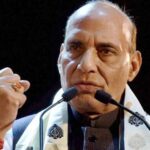Efforts are on to promote Prime Minister Narendra Modi’s ‘Make in India’ campaign at the prestigious 506 Army Base Workshop in the country’s prestigious security institute, Jabalpur, Madhya Pradesh. The institute is preparing to deploy indigenous components in a 155 mm / 39 calibre cannon identified as the Bofors cannon (official name 155 mm B-102 howitzer). The driving valves operating the engine of this cannon manufactured abroad will be replaced and now indigenous driving valves will be installed. These valves give the cannon the ability to move around and aim at different angles. While the country will develop the technology by installing indigenous parts in the cannon, military expenditure will also be reduced. The Indian Army has sent four cannons to the institute for repair. Explain that during the tenure of the then Prime Minister Rajiv Gandhi in the year 1985-86, India had purchased 400 ‘Bofors Cannons’ from Sweden.
The speciality of the Bofors cannon is that its barrel (from which the ball is fired) can lift up to 70 degrees elevation. This makes it a dangerous cannon because with the rise of the barrel up to 70-degree elevation, this cannon is able to hit from one side of the hill to the other. In the Kargil War, this cannon delivered the sixes of Pakistani soldiers.
The Jabalpur-based Gun Carriage Factory (GCF) has made a better cannon than the Bofors cannon in the year 2011-12 under the then General Manager SP Yadav. The improved cannon made by upgrading the technology and parts of the Bofors cannon was then named ‘Dhanush’ (155mm / 45 calibre gun). Let me tell you that the staff of 506 Army Base Workshop have already been successful in improving the cannon made in Sweden and Israel.
JCM-3 Member and Army Staff Side of Army Headquarters, Jabalpur in Madhya Pradesh, Anil Sharma said that the installation of indigenous parts in the repair of cannon, known as Bofors, could reduce the cost of the army. The Army Base Workshop is working with this intention.



